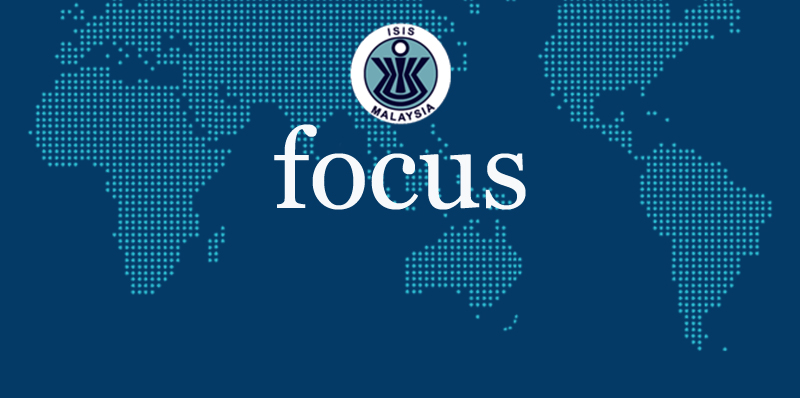Will it be business as usual for security as countries across the globe continue to fight against COVID-19? What are the developments that have come to the fore, which necessitate a re-examination of domestic and regional security?
BY ELINA NOOR
The last time Asia had to battle a coronavirus epidemic was when the Severe Acute Respiratory Syndrome (SARS) emerged at the end of 2002 and raged through the first half of 2003. The first pandemic of the 21st century ultimately resulted in more than 8,000 cases across 26 countries with 774 deaths. These figures now seem inappropriately quaint compared to the ongoing ravage of COVID-19. At the time of writing, nearly 4 million people in more than 190 countries and territories have been infected. The global death toll stands at 260,000 and counting.
As countries grapple with crawling out of quarantine, three emerging trajectories demand our attention. First, effective responses beyond this immediate crisis will require a sobering assessment of national priorities and policies. Across many countries, COVID-19 has exacerbated latent structural inequities across economic, class and communal fault lines. Stay-at-home mandates have exposed the stratification of those who can comply without worrying about food, shelter, or childcare and those who can ill-afford that luxury. Historically disadvantaged minority communities have also suffered disproportionately during the pandemic. Although the data is still evolving, one study shows that in the United States, African Americans account for 34 percent of total COVID-19 deaths in reporting states even though the community accounts for only 13 percent of the total population in those states. In the United Kingdom, official statistics show that those with Black ethnicity are four times more likely to die from COVID-19.
Even as refrains of “we’re in this together” are repeated, the virus has revealed ugly undercurrents of racism and xenophobia in many places. East Asians have been harassed and attacked from London to Los Angeles. In countries like Malaysia, foreigners, migrant workers and refugees have borne the brunt of toxic abuses, online and offline, and been conveniently scapegoated as a burden on society.
Moreover, as scientists suggest a direct link between human destruction of biodiversity and new viral diseases, economic growth priorities should no longer narrowly be focused on outputs but equally, if not more so, on the inputs and processes generating production. These include relational processes within society; that is, how we relate to each other as a nation, how we relate to others in our nation and how we relate to the environment. This is, in fact, a restatement of the 17 Sustainable Development Goals (SDG) adopted by all United Nations Member States in 2015. Urgent political will is thus crucial.
Second, a pandemic that jumps borders compels a coordinated, international response. Yet, at both the regional and global levels, leadership and cooperation have been sorely lacking. The responses of ASEAN Member States have been nationally- rather than collectively-driven in managing COVID-19 even though the lessons of SARS underscored the importance of regional synchronisation.
Further, despite ASEAN’s constant exhortations of being people-centred and people-oriented, the grouping’s new normal has rather been business as usual in convening meetings and issuing statements as a show of response to this pandemic. But perhaps it is too much to expect inter-governmental bureaucracies to act nimbly.
Of greater concern is the strategic climate; specifically, the implications of deteriorating relations between the two largest powers on the rest of the world amid a global pandemic that may yet prove resurgent. The downward-spiraling blame game between the United States and China, the shameless competition for diplomatic brownie points in rendering aid and assistance, and the United States’ determined dismissal of multilateralism during an international crisis have all been spectacularly disappointing. The world expected better. It should now prepare for a very different reality, a future that may well harken back to a past of alignments, blocs, maybe even another Cold War.
Third and relatedly, there will be a pronounced overlap between conventional and non-conventional security challenges. This pandemic has highlighted just how much a non-traditional security issue can entrench and aggravate traditional security calculations of power dynamics and influence. Western demands for an investigation into the origins of – and lessons learned from – COVID-19, even as the pandemic continues to unfold, will only harden geopolitical divisions.
It is also clear from developments in the South China Sea that China will continue to literally push contested boundaries by way of intimidation, harassment and unilateral actions, even in times of widespread illness and death. Additionally, as technology continues to grow in importance and cyberspace becomes a more key domain of engagement, the intersection between conventional and non-conventional security issues will intensify and be mutually reinforcing.
If the souring US-China relationship persists or worsens, Southeast Asia will have to play an active, constructive role in preserving the region’s peace, security and stability. If ASEAN is to live up to its aspirations of unity and centrality, member states must demonstrate leadership through decisive action on difficult issues. In some instances, this may even mean having to utilise the consensus-based mechanism differently from the past and invoking international legal mechanisms when negotiations falter. As the security environment becomes more complex, it is no longer sufficient for ASEAN’s calls to action to remain etched in rhetoric. An ASEAN in service of its community must actually act.
Elina Noor is Visiting Fellow at the Institute of Strategic and International Studies (ISIS) Malaysia





